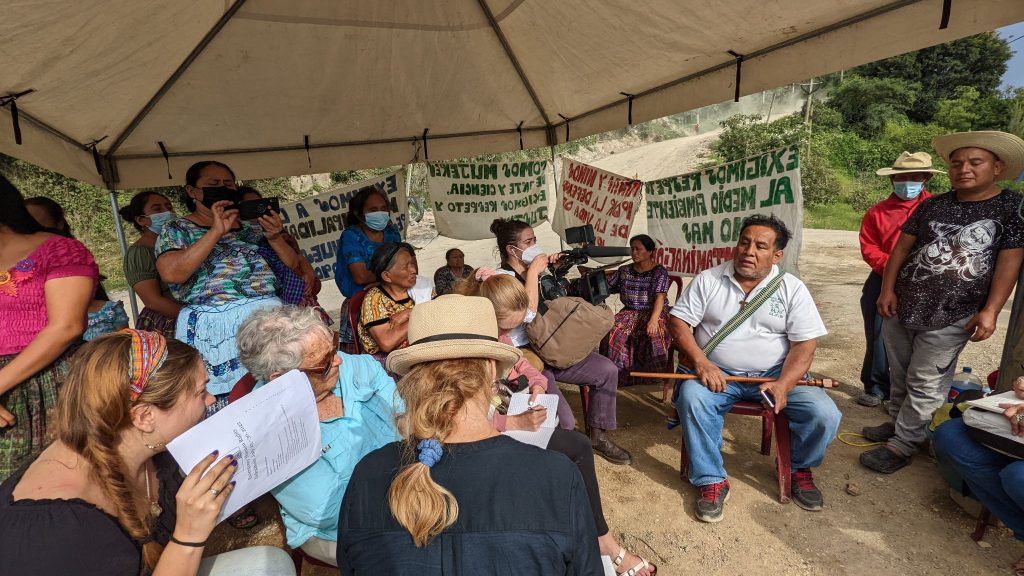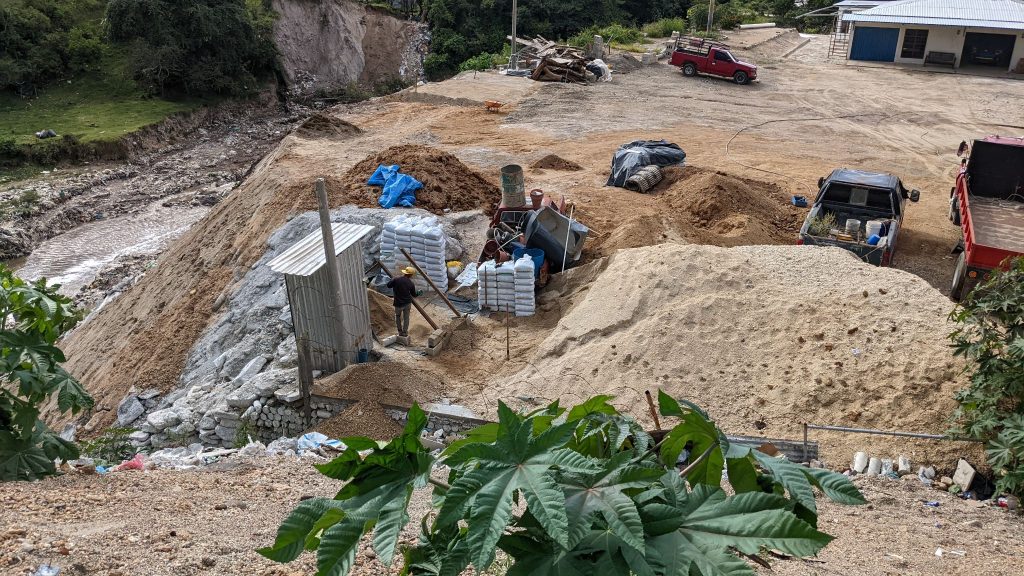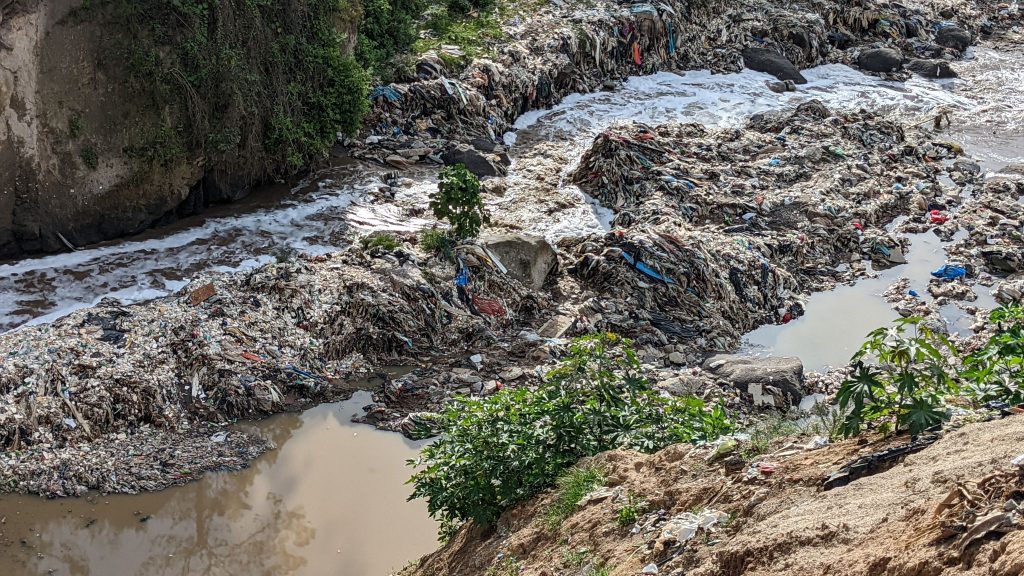* In July, our Program Assistant Yadira Sánchez-Esparza for the Mexico and Central America Programs joined an Emergency Human Rights Delegation led by the Guatemala Human Rights Commission to visit Chinautla, Guatemala.

It is happening again. Extractive projects are once again threatening the ancestral lands of Indigenous communities in Guatemala. The land conflicts we see today are rooted in the colonization of the 1500s, the civil war of the 1980’s and globalization of the 2000s that brought the full force of transnational exploitation. The cycle of inequality, discrimination, and displacement continues to be repeated.
Thankfully there have been efforts both in Guatemalan and international courts to protect the Indigenous communities who are the most affected. Now there is a law that upholds Indigneous persons’ rights to be consulted about projects that will impact their lives, communities, lands, and futures. But in practice this law is almost always ignored. What we are witnissing is what many community leaders refer to as “economic genocide.”
Community leaders have not stood idly by. In fact they have organized peaceful protests in places like La Puya and El Estor with international solidarity for community organizing even in the most isolated areas. But after choosing to speak out, their daily lives are changed forever as they face harassment, attacks, and defamation.
Right now, only 11 miles outside Guatemala City, the community of Chinautla is facing complete annihilation. Still, despite the proximity, protection of their lands help remains out of reach. the intrusion of extractivist companies and pollution suffocating their main water source, which has led to an erosion not only of their homes and roads, but of their future. At first, the projects that started in the area decades ago were small, but over the years, they have grown along with the threats to the community. After many attempts to speak with the companies and being ignored,while health and land problems mounted in the community, there was no other choice but to organize. Community members began a peaceful resistance demanding that their environmental and land rights to their ancestral lands be respected. It isn’t too much to ask.

The extraction of sand by two Guatemalan companies, has been present for decades but at first it was a small project. Today there are dozens of machines and over 200 daily trucks that wake the children as the sun rises. Those who live close to the road have experienced respiratory problems due to the dust. Even the level of the main road has lowered almost six feet. Homes have lost their floors due to the shift in the land. Where before, one could walk from the street into the front door, now you have to climb stairs. In the past there were over 150 families now but almost all had to be relocated because of the extractive activities; today only 20 families are remaining. Community leader Efraín Martínez cites a report from the Ministry of Communication (2010) that officially stated that the work had modified the natural conditions negatively.
At the center of this tragedy is the illegal extraction by private companies, two companies continuing to harm the land despite their expired licenses. Indigenous authorities have said again and again that they have a right in the constitution to be consulted before these operations can legally begin. But it is too late now.
The extractivist activities cause conflicts among communities. In Chinautla, one community leader lamented that individuals from the community chose to work for these companies. In his eyes, they are contributing to a self-destructive path harming their own land, neighbors, and culture. While they may earn good pay,from his perspective, it will never be enough to repair the spiritual and communal wounds.

Efraín Martínez, the community spokesperson, recounted that years earlier, the Las Vacas river was green, with vegetables lining banks, and it would often be filled with people swimming. Now the reality is very different. The landfills from a part of the city known as Zone 3 disintegrated, and the river has become polluted with mountains of trash on the banks. Not only is the water not potable for people, animals, and plants, but the smell of waste is pungent and a constant reminder of how much the community has lost. The community describes their experience as comparable to being someone with an illness who, instead of receiving aid, is only further sickened; their land and culture are dying.
In response, they are doing what anyone would do: demanding that the illegal extraction ends and that the Guatemalan authorities address the landfill disintegration. Their peaceful resistance has received significant backlash, including criminalization, defamation, and death threats. Because of these threats, the people living closest to the projects on the other side of the bridge choose not to participate for fear of retaliation. Local police officers employed by the companies frequently visit to intimidate the community. While the delegation was present, a police officer came to intimidate the community, he is known to the community due to how frequently he harrasses them in an attempt to stop their efforts.
It is no wonder the community feels abandoned not only by the Guatemalan state government but by even larger international organizations. They feel that it is the responsibility of these entities to protect their community and all Indigenous communities. They are right. It is also our responsibility to speak out against the systematic destruction of Indigenous land and culture in Guatemala and across the Americas. It is our responsibility to amplify that Indigenous communities have rights to be consulted about development projects on their lands. Choose to move against the status quo that prioritizes profit over children’s futures. A brighter future is not possible without Indigenous communities.


